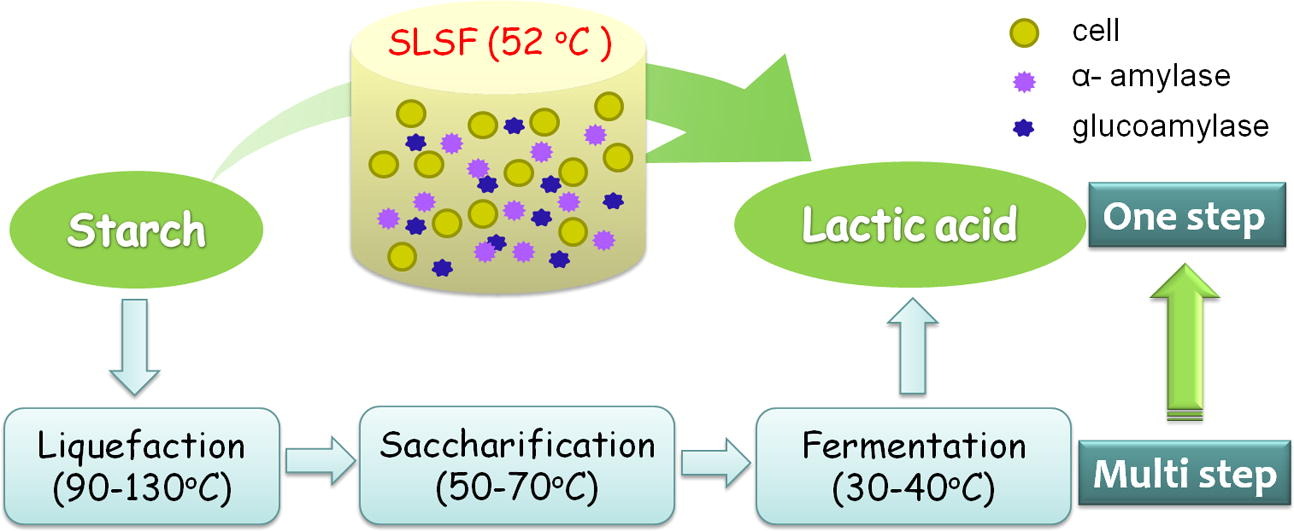EnzymoGenius™, our advanced enzyme AI design platform, specializes in delivering comprehensive enzyme design and optimization services tailored exclusively for lignocellulosic biomass conversion research. With a keen focus on scientific applications, our offerings encompass cutting-edge solutions that empower researchers in the field to harness the full potential of enzymatic processes for lignocellulosic biomass conversion.
Introduction to Lignocellulosic Biomass Conversion
Lignocellulosic biomass conversion is a pivotal process within the realm of renewable energy and sustainable biofuel production. It involves the transformation of complex lignocellulosic structures found in plant materials, such as wood, crop residues, and dedicated energy crops, into valuable biofuels and biochemicals. This intricate process relies on the synergistic action of enzymes to break down cellulose, hemicellulose, and lignin components into fermentable sugars and other valuable intermediates.
 Fig 1. Fermentation of lactic acid production from inedible starch biomass using enzymes. (Wang Y, et al., 2019)
Fig 1. Fermentation of lactic acid production from inedible starch biomass using enzymes. (Wang Y, et al., 2019)
Predominantly composed of cellulose, hemicellulose, and lignin, this complex matrix is refractory to enzymatic deconstruction. Utilizing advanced biotechnology, enzymes are designed and optimized to effectively break down this resistant material, potentially converting it into biofuels or other renewable resources. Examples of such enzymes include endoglucanases, exoglucanases, and β-glucosidases. Through meticulous design and optimization, biotechnological solutions can thus unlock the potential of lignocellulosic biomass as a sustainable resource. Thus, these advances contribute significantly to eco-friendly alternatives in energy production and waste reduction.
Our AI-driven Enzyme Design and Optimization for Lignocellulosic Biomass Conversion Study
CD Biosynsis helps to meet your sustainability goals and lower your cost-in-use by offering a suite of high-quality services for the design and optimization of enzymes, as well as comprehensive custom products and solutions.
How We Can Help?
- Enzyme Sequence Design. Customized generation of enzyme sequences optimized for lignocellulosic substrate specificity.
- Enzyme Structure Prediction. Precise modeling of enzyme structures to enhance catalytic efficiency.
- Enzyme Kinetics Simulation. Accurate prediction of enzyme-substrate interactions and reaction kinetics.
- Substrate Specificity Tuning. Tailoring enzymes for improved performance on specific lignocellulosic substrates.
- Directed Evolution. Harnessing AI-driven approaches for evolving enzymes with enhanced activity and stability.
Applicable Research Areas
- Biofuel Production. Enzyme products and solutions support the development of sustainable biofuels from lignocellulosic feedstocks.
- Biorefinery Operations. Our enzymes enable efficient conversion of biomass into valuable biochemicals.
- Agricultural Residue Utilization. Enzymatic approaches for converting crop residues into bio-based products.
- Forest Biomass Valorization. Enzymes for transforming wood biomass into renewable materials.
Our Technical Advantages

Accelerated Discovery
AI-driven design expedites the identification of enzymes with desired properties, significantly reducing development timelines.

Tailored Solutions
Precise customization of enzymes for specific reactions, leading to enhanced product yields and reduced by-products.

Cost Efficiency
AI-based optimization minimizes resource expenditure by focusing efforts on the most promising candidates.

Sustainability
By enabling the use of greener, enzyme-based processes, AI contributes to sustainability goals.
CD Biosynsis stands as your trusted partner in driving innovation and scientific progress. By harnessing cutting-edge technologies and a deep understanding of enzymatic processes, we empower researchers to unlock the full potential of lignocellulosic biomass as a renewable and sustainable resource. For inquiries and collaborations, please don't hesitate to contact us.
Reference
- Wang, Y.; et al. One step open fermentation for lactic acid production from inedible starchy biomass by thermophilic Bacillus coagulans IPE22. Bioresource Technology. 2019, 272: 398-406.

































 Fig 1. Fermentation of lactic acid production from inedible starch biomass using enzymes. (Wang Y, et al., 2019)
Fig 1. Fermentation of lactic acid production from inedible starch biomass using enzymes. (Wang Y, et al., 2019) 


